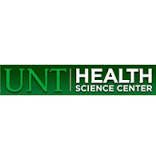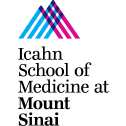What do they do?
Conduct research dealing with the understanding of human diseases and the improvement of human health. Engage in clinical investigation, research and development, or other related activities.
Also known as:
Clinical Laboratory Scientist (Clinical Lab Scientist), Clinical Pharmacologist, Clinical Research Scientist, Medical Health Researcher, Medical Research Scientist, Medical Researcher, Physician Scientist, Research Scientist, Researcher, Scientist, Study Director, Toxicologist
-
9.8%
Change
Select a state to see its job growth rate ranking7,500Job Openings
Select a state to see its net job growth ranking
Looking for colleges that offer a specific major? Use the College Match Tool to find your best-matched schools and discover your estimated Net Price!
- Doctorate or Professional Degree (48%)
- Master's degree (26%)
- Bachelor's degree (24%)
- Some college, no degree (1%)
- Associate's degree (<1%)
- Less than high school diploma (<1%)
- High school diploma equivalent (<1%)
Most Popular Majors that prepare Medical Scientists, Except Epidemiologists
-
#1
-
Degrees Granted
3,664
-
Female Students
2,376
-
Male Students
1,288
-
Median Starting Salary
$40,800
-
-
#2
-
Degrees Granted
1,776
-
Female Students
1,328
-
Male Students
448
-
Median Starting Salary
$42,090
-
-
#3
-
Degrees Granted
921
-
Female Students
555
-
Male Students
366
-
Median Starting Salary
$42,090
-
-
#4
-
Degrees Granted
802
-
Female Students
485
-
Male Students
317
-
Median Starting Salary
$42,090
-
-
#5
-
Degrees Granted
664
-
Female Students
463
-
Male Students
201
-
Median Starting Salary
$51,200
-
People in this career often have these skills:
- Writing - Communicating effectively in writing as appropriate for the needs of the audience.
- Speaking - Talking to others to convey information effectively.
- Science - Using scientific rules and methods to solve problems.
- Active Learning - Understanding the implications of new information for both current and future problem-solving and decision-making.
- Reading Comprehension - Understanding written sentences and paragraphs in work-related documents.
- Active Listening - Giving full attention to what other people are saying, taking time to understand the points being made, asking questions as appropriate, and not interrupting at inappropriate times.
- Critical Thinking - Using logic and reasoning to identify the strengths and weaknesses of alternative solutions, conclusions, or approaches to problems.
- Judgment and Decision Making - Considering the relative costs and benefits of potential actions to choose the most appropriate one.
- Complex Problem Solving - Identifying complex problems and reviewing related information to develop and evaluate options and implement solutions.
- Systems Analysis - Determining how a system should work and how changes in conditions, operations, and the environment will affect outcomes.
- Mathematics - Using mathematics to solve problems.
- Monitoring - Monitoring/Assessing performance of yourself, other individuals, or organizations to make improvements or take corrective action.
- Learning Strategies - Selecting and using training/instructional methods and procedures appropriate for the situation when learning or teaching new things.
People in this career often know a lot about:
- Biology - Knowledge of plant and animal organisms, their tissues, cells, functions, interdependencies, and interactions with each other and the environment.
- English Language - Knowledge of the structure and content of the English language including the meaning and spelling of words, rules of composition, and grammar.
- Medicine and Dentistry - Knowledge of the information and techniques needed to diagnose and treat human injuries, diseases, and deformities. This includes symptoms, treatment alternatives, drug properties and interactions, and preventive health-care measures.
- Chemistry - Knowledge of the chemical composition, structure, and properties of substances and of the chemical processes and transformations that they undergo. This includes uses of chemicals and their interactions, danger signs, production techniques, and disposal methods.
People in this career often have talent in:
- Oral Expression - The ability to communicate information and ideas in speaking so others will understand.
- Written Expression - The ability to communicate information and ideas in writing so others will understand.
- Inductive Reasoning - The ability to combine pieces of information to form general rules or conclusions (includes finding a relationship among seemingly unrelated events).
- Oral Comprehension - The ability to listen to and understand information and ideas presented through spoken words and sentences.
- Written Comprehension - The ability to read and understand information and ideas presented in writing.
- Deductive Reasoning - The ability to apply general rules to specific problems to produce answers that make sense.
- Information Ordering - The ability to arrange things or actions in a certain order or pattern according to a specific rule or set of rules (e.g., patterns of numbers, letters, words, pictures, mathematical operations).
- Category Flexibility - The ability to generate or use different sets of rules for combining or grouping things in different ways.
- Speech Clarity - The ability to speak clearly so others can understand you.
- Problem Sensitivity - The ability to tell when something is wrong or is likely to go wrong. It does not involve solving the problem, only recognizing that there is a problem.
- Near Vision - The ability to see details at close range (within a few feet of the observer).
- Speech Recognition - The ability to identify and understand the speech of another person.
- Mathematical Reasoning - The ability to choose the right mathematical methods or formulas to solve a problem.
People in this career often do these activities:
- Monitor operational procedures in technical environments to ensure conformance to standards.
- Research diseases or parasites.
- Plan biological research.
- Direct medical science or healthcare programs.
- Analyze biological samples.
- Establish standards for medical care.
- Instruct college students in physical or life sciences.
- Prepare scientific or technical reports or presentations.
- Write grant proposals.
- Prepare proposals or grant applications to obtain project funding.
- Operate laboratory or field equipment.
- Establish standards for products, processes, or procedures.
- Advise others on healthcare matters.
This page includes data from:

 Occupation statistics: USDOL U.S. Bureau of Labor Statistics Occupational Employment Statistics
Occupation statistics: USDOL U.S. Bureau of Labor Statistics Occupational Employment Statistics
 Videos: CareerOneStop, USDOL/ETA and the Minnesota Department of Employment & Economic Development
Videos: CareerOneStop, USDOL/ETA and the Minnesota Department of Employment & Economic Development










